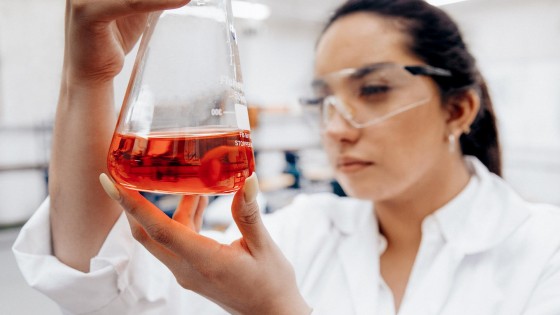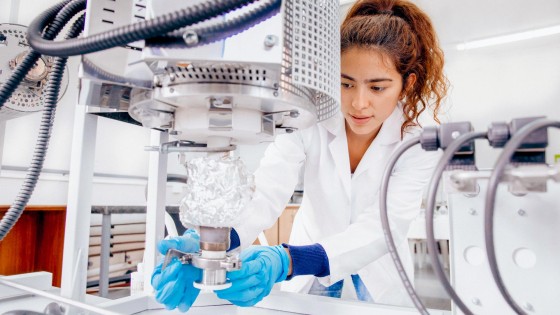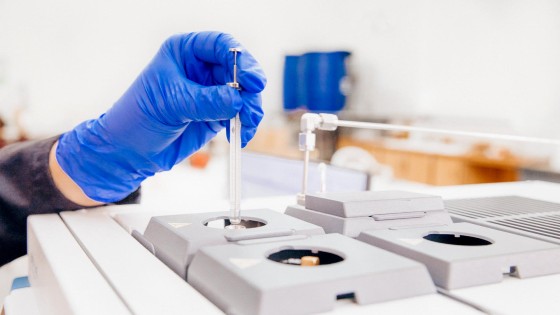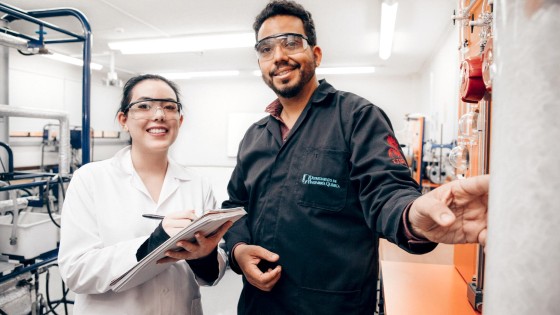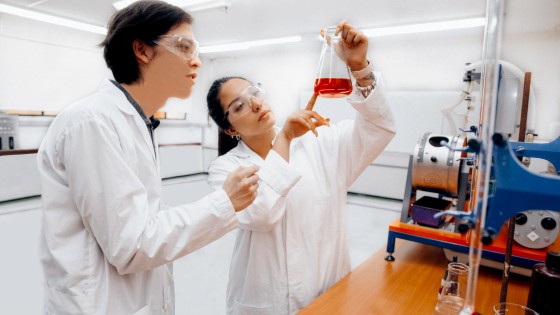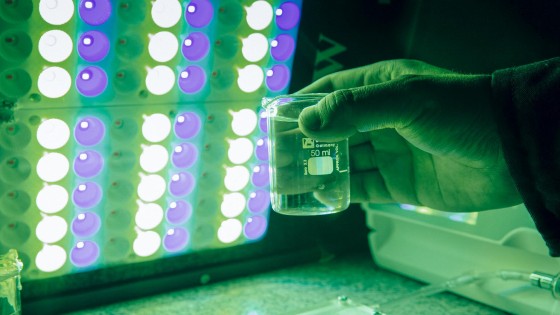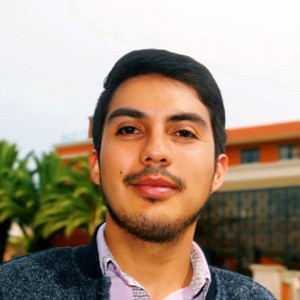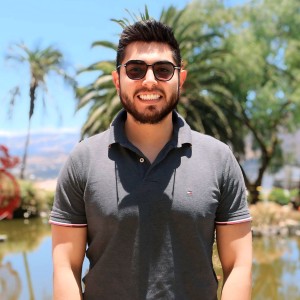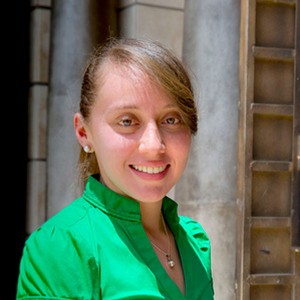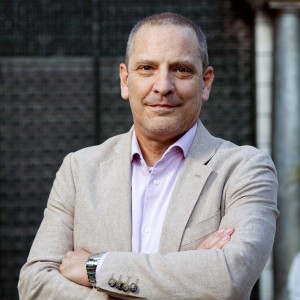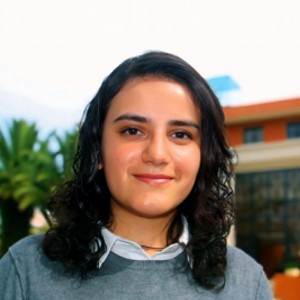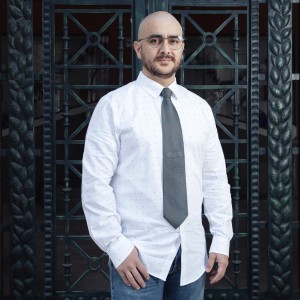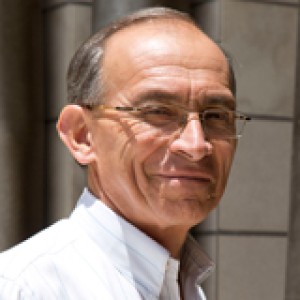Chemical Engineering
"We develop cutting-edge technologies for the sustainable use of materials and energy"
Chemical Engineering
The Chemical Engineering program at USFQ provides a comprehensive study of the physical and chemical phenomena involved in transforming matter through mechanical, thermal, and chemical processes. Students gain a deep understanding of these processes at molecular and macroscopic levels. Moreover, they learn to create innovative products and processes, contributing to the production of raw materials, intermediate products, and final goods. Analysis is conducted through experimentation, mathematical modeling, and the application of engineering principles.
Upon graduation, students possess the competencies required for responsible performance as chemical engineers. With a solid foundation in knowledge and skills, they are well-prepared for successful careers. The program offers a comprehensive education that equips students with a profound understanding of chemical engineering principles and their practical application.
Advantages
- USFQ offers its Chemical Engineering students a high level academic atmosphere, with professors holding PhD’s from prestigious North American, European, and Asian universities.
- The program offers modern chemistry and chemical engineering laboratories where students carry out experiments similar to those that occur in the chemical industry.
- The department of Chemical Engineering carries out cutting-edge studies in various areas such as development of chemical processes, circular engineering, renewable energy, biomaterials, bioprocesses, and computational chemistry. Students are involved in these projects from their first year of study, projects that are led by professors who specialize in the mentioned fields.
- A high percentage of Chemical Engineering students participate in international exchange and internship programs offered by USFQ, allowing them to gain international experience by learning how scientific and technical education is taught abroad.
- Chemical Engineering students are able to join the student chapter of the American Association of Chemical Engineers, AIChE, which offers great benefits such as participation in national and international conferences and competitions, industrial visits, access to databases and exclusive information, job fairs, among other activities.
Professional profile
The combination of technical preparation acquired in different areas of process engineering, professionalism applied in projects, and a humanistic vision imparted through Liberal Arts forms graduates committed to personal, social, and organizational improvement through entrepreneurship and productive development. USFQ's Chemical Engineering graduates are professionals capable of effective decision making and problem solving, using deep critical thinking and having sensibility towards the social, economic, and environmental reality of Ecuador and the world.
Currently, there is an important demand for chemical engineers at a local and global level, for this reason, USFQ graduates have a wide range of employment options including venturing into national and transnational companies, starting their own production business, offering design or technical consulting, specializing in different technical or administrative areas, among many others.
Career field
A Chemical Engineer's professional work field is extensive thanks to the importance and relevance of knowledge acquired in the industry. Chemical Engineering graduates of USFQ are successful in professional areas such as design and implementation of industrial processes and plants, plant or project engineering, industrial safety, environmental management, research and development, process control, quality control, management, technical assistance, marketing and entrepreneurship, among others. These possibilities exist thanks to the solid foundations and knowledge that students acquire during their studies, and the proximity to practice and application within projects developed throughout the program.
Testimonials
“The academic rigor of the program allowed me to obtain the knowledge of chemistry, engineering, and processes that have been the fundamental base on which I have developed my career in the oil industry. Beyond academic teaching, the University and its Liberal Arts curriculum gave me the opportunity to explore different interests and areas of knowledge. Today, I highly value this teaching philosophy because it has allowed me to develop a global and balanced vision of the world, thanks to which I am able to convey the critical and structured thinking inherent in the sciences to any other field in my professional performance. The University gave me the opportunity to develop technical knowledge, social and personal skills, to learn from excellent professionals and academics, and to make friends for life. Today, I am happy to say that it was a wise decision.”
- Carolina Ulloa, USFQ Chemical Engineering Graduate, Class of 2011 -
“Studying Chemical Engineering at USFQ was a unique and very enriching experience. Thanks to the focus on processes in the program and Liberal Arts, I have managed to find great job opportunities in plant supervision and research positions locally and abroad. During the five years of my studies, I found excellent professors with extensive knowledge in their specific areas who, above all, offered me constant support. Without a doubt, what I most appreciate about USFQ's Department of Chemical Engineering is that it allowed me to be part of research and development projects from the second year of my program, since this allowed me to gain experience and see first-hand what a chemical engineer can do."
- Álvaro Gallo, USFQ Chemical Engineering Graduate, Class of 2016 -
“Chemistry is an integral part of everything that surrounds us and is responsible for the continuous improvement of our quality of life. By carrying out chemical principles on a large scale, engineering has been an important part of that development.
I chose this career because it gives a holistic view of the industry and endless opportunities for specialization. Due to this versatility, I have been able to work in the pharmaceutical industry, research, and even in the automotive field.
The Liberal Arts philosophy of the University of San Francisco de Quito has broadened my horizons and therefore my field of action: I have been able to see my career from several points of view. USFQ has a focus on personal and professional growth not only on its campus, but also in agreement with the best universities worldwide. Under its sponsorship, I studied for a year at the University of Ottawa in Canada and interned at a research center in Poland. Thanks to that growth in my resume, I now work in one of the best manufacturing companies in the country.”
- Jhoselyn Padilla, USFQ Chemical Engineering Graduate, Class of 2017 -
"USFQ's Chemical Engineering program offers students a plan of study that meets all international requirements in order to successfully practice the profession. The expertise of professors in their different specializations applied during development and research projects, provide students with a current and modern perspective on new trends and developments worldwide, while Liberal Arts training balances technical and scientific career training with a humanistic vision, allowing the student to identify the needs of others and be aware of social and environmental problems."
- Daniela Almeida Streitwieser, Ph.D. in Chemical and Process Engineering from the University of Erlangen - Nuremberg, Germany -
“Our greatest strength, in my opinion, is that we are a state-of-the-art Chemical Engineering Department which addresses not-so-traditional topics, while still marking the world trends: bioenergies, bioengineering, novel environmental applications, and important computational components, among others.
Additionally, we are distinguished by the closeness between professors and students, the fact that students can get involved in research very early, and the fact that we are a department with young and dynamic energy.”
- José Francisco Álvarez Barreto, Ph.D. in Chemical, Biological and Materials Engineering, University of Oklahoma, USA
Professor and Head of the Department of Chemical Engineering -
“Chemical Engineering is a multifunctional career. You will acquire a breadth of knowledge and skills, which allow you to obtain a variety of jobs from research to the design of new materials. Chemical Engineering opens doors since it has great possibilities in other areas of knowledge. Chemical Engineering represents a high demand in the labor market and has the great possibility of contributing towards a sustainable future.”
- Alexis Hidrobo, Ph.D. in Chemistry, Universidad de Chile, Professor of the Department of Chemical Engineering -
“Chemical Engineering is engineering that studies transformation processes. Matter and energy can be transformed through mechanisms to meet certain objectives. The Department of Chemical Engineering offers the opportunity to understand the fundamentals responsible for achieving these objectives, to research and develop technology and processes in different areas such as energy, materials, modeling, simulation, computational chemistry, etc. from a humanistic, innovative, and sustainable perspective.”
- Andrea C. Landázuri, Ph.D. in Chemical Engineering with a minor in Environmental Engineering, University of Arizona, USA
Professor of the Department of Chemical Engineering -
International Accreditation
Documentación
Program educational objectives (PEO)
Engineering Practice
PEO 1: Demonstrate excellence in tools, principles and practices related to chemical engineering and basic sciences that will enable graduates to solve complex problems with critical, ethical and analytical thinking, within a multidisciplinary and global perspective.
Leadership and entrepreneurship
PEO 2: Exercise leadership and entrepreneurship in public and private environments, including but not limited to industry and academia, in order to generate creative, innovative, sustainable and ethical solutions to local and global challenges using the tools of chemical engineering.
Humanist perspective
PEO 3: Contribute to the integral development of the community.
Life-long professional improvement
PEO 4: Actively engage in continuous improvement, in the form of graduate studies, professional improvement, training and independent inquiry, to strengthen their skills and resources.
Student Outcomes (SO)
Engineering Foundations:
SO 1: An ability to identify, formulate, and solve complex engineering problems by applying principles of engineering, science, and mathematics.
Engineering Design
SO 2: An ability to apply engineering design to produce solutions that meet specified needs with consideration of public health, safety, and welfare, as well as global, cultural, social, environmental, and economic factors.
Effective communication
SO 3: An ability to communicate effectively with a range of audiences
Contemporary Issues and Ethical Responsibility
SO 4: An ability to recognize ethical and professional responsibilities in engineering situations and make informed judgments, which must consider the impact of engineering solutions in global, economic, environmental, and societal contexts.
Teamwork and organization
SO 5: An ability to function effectively on a team whose members together provide leadership, create a collaborative and inclusive environment, establish goals, plan tasks, and meet objectives
Experiment Design and Analysis
SO 6: An ability to develop and conduct appropriate experimentation, analyze and interpret data, and use engineering judgment to draw conclusions.
Life-long learning and Broad knowledge
SO 7: An ability to acquire and apply new knowledge as needed, using appropriate learning strategies
Performance Indicators (PI)
Engineering Foundations
- PI1: Identify the key componentes of a complex problem with their physical, mathematical and chemical aspects.
- PI2: Formulate complex problems related to chemical engineering using computational and mathematical tools.
- PI3: Identify potential solutions to complex problems by applying engineering tools.
Engineering Design
- PI1: Design and apply industrial processes related to chemical engineering to meet specific requirements.
- PI2: Evaluate the economic feasibility of a chemical process project.
- PI3: Evaluate project risks associated to environmental, health and safety impacts
- PI4: Understand the social and cultural implications of the chemical process industry
Effective communication
- PI1: Show effective writing communication skills.
- PI2: Show effective oral communication skills
- PI3: Show effective visual communication skills.
- PI4: Communicate effectively to a wide range of audiences.
Contemporary Issues and Ethical Responsibility
- PI1: Understand the ethical and professional responsibilities of engineering practice.
- PI2: Consider multiculturality and diversity when analyzing the ethical aspects of engineering solutions
- PI3: Realize the economic impact of engineering practice
- PI4: Realize the environmental impact of engineering practice.
Teamwork and organization
- PI1: Demonstrate capacity for efficient team work and leadership
- PI2: Promote an inclusive and collaborative environment in the team.
- PI3: Establish detailed project planning to meet well established objectives
Experiment Design and Analysis
- PI1: Define input and output variables, as well as their levels.
- PI2: Carry out experiments with scientific rigurosity, according to a previous thorough experimental design.
- PI3: Present results in a clear and concise manner
- PI4: Discuss results thoroughly, with clear conclusions through a detailed analysis of the literature.
Life-long learning and Broad knowledge
- PI1: Identify strengths, weaknesses, opportunities and threats to professional improvement
- PI2: Find the most appropriate route and method to acquire knowledge
- PI3 Update and improve engineering skills when necessary
- PI4: Seek certification in key areas such as quality assurance, and occupational safety and health.
Academic Faculty

